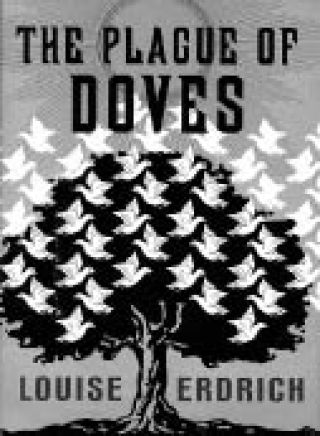The Plague of Doves
by Louise Erdrich
HarperCollins, $25.95
Reviewed by Colleen Smith Armstrong
Louise Erdrich writes of Native American culture, lore, and history with guts and glory and a lot of grace. Her newest novel has potent themes of violence, sin, and salvation that play off one another to form a dynamic story.
The book is centered around the murder of a white family in 1911. Everyone, even the farm animals, was shot, except for a baby girl. What happened after the murders set the course for generations of friends and family in Pluto, North Dakota, starting with the Indians who were falsely incriminated and hanged for the crime and the men who accused them.
“The Plague of Doves” is narrated by Evelina, the granddaughter of Mooshum, who survives the hanging, Judge Antone Bazil Coutts, a mixed blood who observes the town with a clear head and has his own tangled love life to wade through, and a few other memorable voices, all of whom fit another piece into the puzzle of Pluto’s history.
Every character in the story is tied to the murders decades before. Some fit snugly against the terror of it and still feel its weight. Others are more distant, but eventually can’t escape the truth of the town – and their heritage. The story is convoluted, and it’s not made any easier by the abundance of characters, their complicated lineages, and intertwined histories. As long as you can keep everyone’s names and connections straight, the novel is compelling.
Like all of Erdrich’s best novels, “The Plague of Doves” is not light reading, and her characters feel in extreme, powerful ways. Evelina, Mooshum, Judge Coutts – they all feel the thunder and lightning of walking this earth. As Judge Coutts remembers a scandal from long ago, he says this: “But of course the entire reservation is rife with conflicting passions. We can’t seem to keep our hands off one another, it is true, and every attempt to foil our lusts through laws and religious dictums seems bound to excite transgression.”



